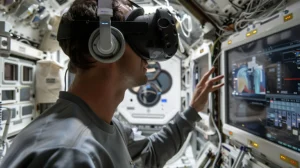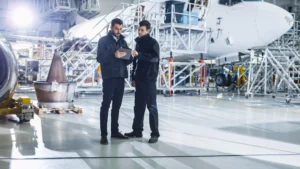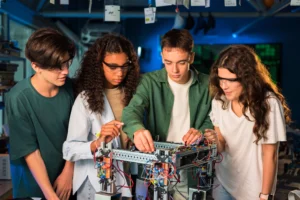Engineering Skills for the Space Industry
The space industry is one of the most advanced and rapidly growing sectors in the world, and it demands a unique blend of technical expertise, innovation, and resilience. At the heart of this innovation are the engineering skills for the space industry—skills that enable engineers to build, control, and analyze everything from satellites and communication systems to rovers and robotic arms. From mechanical design to AI integration, these skills are key to humanity’s exploration beyond Earth.
Core Engineering Skills for the Space Industry
To succeed in this dynamic field, students must acquire and master core engineering skills for the space industry, including:
- Systems Engineering Proficiency
Engineers must understand and manage complex subsystems working together in harmony. Systems engineering ensures mission efficiency and success. - Expertise in Electronics and Communication
Communication is vital in space. Engineers develop onboard electronics and signal processing systems that enable real-time data transfer between spacecraft and Earth. - Mechanical Design and Thermal Analysis
Building space-resilient structures that can withstand radiation, vacuum pressure, and extreme temperature variations is a critical skill. - Software Development and AI Integration
Autonomous navigation, diagnostics, and data collection require advanced coding skills and knowledge of AI models—crucial engineering skills for the space industry. - Problem-Solving and Critical Thinking
Space missions are unpredictable. Engineers must be innovative problem-solvers who can quickly analyze and adapt to real-time anomalies.

Preparing for the Space Industry at KRCE
KRCE may not offer a dedicated aerospace program, but its departments provide a strong foundation in engineering skills for the space industry through interdisciplinary learning and hands-on application:
- Electrical and Electronics Engineering (EEE): Focuses on power systems, signal processing, and instrumentation—all applicable to space tech.
- Electronics and Communication Engineering (ECE): Builds expertise in satellite communication, embedded systems, and microelectronics.
- Mechanical Engineering: Trains students in CAD, thermal systems, and structural analysis—skills essential for satellite and propulsion design.
- Computer Science and Engineering (CSE): Offers in-depth training in programming, machine learning, and software simulations for autonomous systems.
KRCE’s curriculum is crafted to ensure that graduates gain the engineering skills for the space industry, making them future-ready.

Industry Collaborations Enhancing Engineering Skills for the Space Industry
One of KRCE’s key strengths is its industry collaborations. A standout example is its partnership with High Energy Batteries (India) Limited, which provides:
- Hands-on Experience with aerospace-grade power solutions.
- Research Opportunities focused on electrochemical energy systems.
- Expert Lectures by professionals from the defense and space sector.
These real-world exposures strengthen students’ engineering skills for the space industry and make them career-ready.
Extracurricular Activities Fostering Engineering Skills for the Space Industry
Outside the classroom, KRCE cultivates relevant skills through vibrant student engagement initiatives:
- Technical Clubs in robotics, electronics, and coding simulate the environment of real-world aerospace teams.
- Hackathons and Competitions test students’ agility and creativity under pressure—an essential trait for engineers in space missions.
- Workshops and Seminars on AI, remote sensing, and satellite design expose students to industry trends.
These activities serve as platforms to refine and apply engineering skills for the space industry in innovative ways.

Launching a Career with Engineering Skills for the Space Industry
With a strong base in core disciplines, KRCE students are well-prepared to pursue careers in the global space sector. Potential roles include:
- Satellite Systems Engineer
- Aerospace Software Developer
- Communication Systems Specialist
- Robotics & AI Engineer
- Thermal Systems Analyst
- Space Tech Consultant
These roles require a dynamic combination of technical and analytical expertise—exactly the engineering skills for the space industry that KRCE cultivates.

Conclusion
The universe is not just the next frontier—it is a career opportunity for aspiring engineers. With the rise of commercial space travel, miniaturized satellites, and AI-powered mission control, the demand for engineers with specialized expertise is skyrocketing.
KRCE’s commitment to hands-on training, interdisciplinary projects, and industry exposure ensures students gain the engineering skills for the space industry that will define the engineers of tomorrow.
Whether your dream is to launch satellites, code for Mars rovers, or innovate in deep space communications—your journey begins with the right skills, and the right college.


